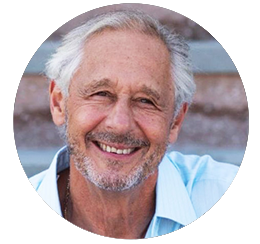Target Audience:
Mental Health Professionals
Tags:
Trauma, Psychoanalysis, Unconscious Defenses, Psychotherapy
Course Overview
Introduction
Our experiences with trauma often focus on our emotions, memories and conscious recognition of these unimaginable events. However powerful these emotions may be, the deeper and more disturbing aspects of the experiences are exiled, and forced to live within the unconscious. From molestation, to war, and to the loss of a loved one, the more conflictual nature of the trauma remains estranged from conscious recognition, which in turn makes us prone to endless repetitions of these events.
Hoping to spare the individual the terrible pain associated with these experiences, the defense mechanisms work to dramatically modify the inner experiences to such an extent that when they do appear in dreams, derivative communication, or even as a memory, they are virtually unrecognizable as being in any way related to the trauma. It was these dynamics associated with the defense mechanisms that caused Anna Freud to explain that the therapeutic task is made all the more difficult because the details of the trauma go through numerous modifications, and the clinician and individual is only allowed to see the vague and indistinct outlines of the trauma. However herein lies the true benefit of developing an analytic eye, and in seeing the actual trauma present within these modifications.
A dramatic example of this is found in the natural defense strategy of the Musk Ox. Since the beginning of time, the herd have responded to the presence of a predator by forming a perfect circle with their young safely secured within this protective shield. This defense worked perfectly UNTIL hunters entered the scene with knives, spears and eventually guns, and saw this circular formation as making the ox easy prey for the hunters. These and other animals are on the brink of extinction because of the very fact that their defenses to the original threat which were effective, never evolved.
About the Seminar:
A central issue in these seminars will be discussions of how to draw the patients and therapists awareness to the unconscious representation of trauma and ways of working with these in order to build a meaningful life inclusive of conscious and especially unconscious recognition of trauma within the Psyche.As Jung reminds us that; "What we do not face consciously comes back to us as fate," and Freud: "That we repeat what we do not want to remember," these defenses inevitably keep us shackled to ongoing iterations of the very trauma we seek to avoid. In part, this is because our defenses are relatively primitive responses to such overwhelming experiences.
In this presentation we will address the unconscious perception of traumatic events, and how they appear in our life in symbolic form, including the replicative nature of many of our disturbed relationships. So too, we will discuss how the primitive and unchanging nature of these defenses actually evoke the terror and a new edition of the trauma we are hoping to escape. As in the story of the Musk Ox, we see the imperative of an evolved response to trauma, otherwise, as we learn from the field of ethology, survival for animals and humans is dependent on the moving beyond our habitual and outdated means of protection when in the face of terror.

Michael Conforti, Ph.D
Michael Conforti is a Jungian analyst and the Founder and Director of the Assisi Institute. He is a faculty member at the C.G. Jung Institute of Boston, the C.G. Jung Institute of New York, and for many years served as a Senior Associate faculty member in the Doctoral and Master's Programs in Clinical Psychology at Antioch New England. A pioneer in the field of matter-psyche studies, for the past 40 years, he has been actively investigating the workings of archetypal fields and the relationship between Jungian psychology and the New Sciences.
His work is presented to a wide ranging international audiences, including the C.G. Jung Institute - Zurich and Jungian organizations in Australia, Canada, Colombia, Denmark, Ecuador, Indonesia, Italy, Romania, Russia, South Africa, Turkey, the Ukraine and Venezuela.
He is the author of Threshold Experiences: The Archetype of Beginnings (2007) and Field, Form and Fate: Patterns in Mind, Nature and Psyche (2002). His articles have appeared in Psychological Perspectives, The San Francisco Jung Institute Library Journal, Roundtable Press, World Futures: The Journal of General Evolution, and Spring Journal. His books have been translated into Italian, Russian, and Spanish.

